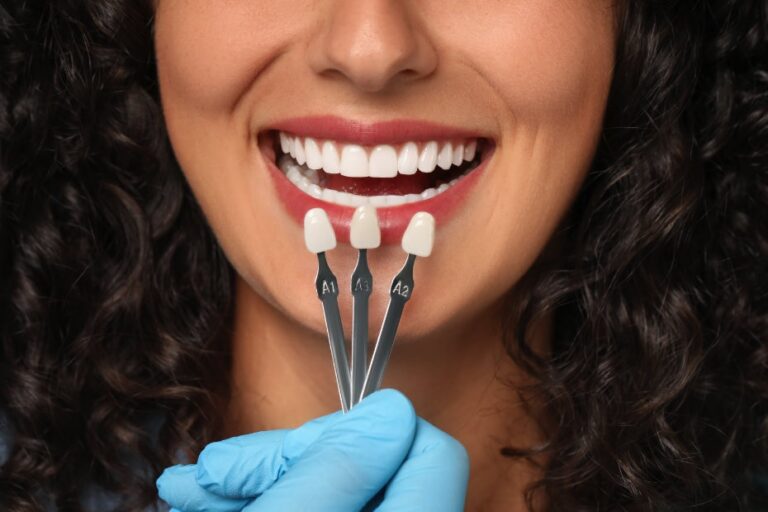
Introduction: Why Peptides Are the New Buzzword in Wellness
In recent years, peptides have emerged as a popular topic in the wellness industry, capturing the attention of health enthusiasts and medical professionals alike. This surge in interest is not without reason—peptides, which are short chains of amino acids, play a crucial role in various biological processes. With their potential to influence everything from hormone regulation to metabolism, peptides are being hailed as the next frontier in health optimization.
Peptides are particularly attractive because they promise targeted effects with fewer side effects compared to traditional pharmaceuticals. As natural components of the body, they can be engineered to enhance specific functions such as muscle growth, fat loss, and even hormone production. However, as with any health trend, it’s essential to separate fact from fiction to understand what peptides can genuinely offer.
The buzz around peptides has led to a proliferation of peptide therapy clinics, each promising a range of benefits from increased vitality to improved fertility. This article aims to demystify peptide therapy, providing a clear, evidence-based look at what peptides can—and can’t—do for testosterone, weight loss, and fertility. Whether you are considering peptide therapy for its potential health benefits or simply want to stay informed, understanding the science behind the hype is crucial.
What Is Peptide Therapy? A Quick Primer
Peptide therapy involves the use of peptides to stimulate specific functions within the body. This therapeutic approach is based on the premise that peptides can be tailored to interact with cellular receptors, thereby influencing biological processes in a targeted way. As a result, peptide therapy has gained traction in areas such as anti-aging, athletic performance, and hormone regulation.
The versatility of peptides makes them suitable for addressing a variety of health concerns. For instance, certain peptides can mimic the action of hormones, making them useful in treating hormone imbalances. Others can enhance metabolic functions, thereby aiding in weight loss. The ability to customize peptides for specific outcomes is a significant advantage, allowing for personalized treatment strategies.
However, navigating the world of peptide therapy requires knowledge and caution. Not all peptides are created equal, and their effectiveness can vary. Understanding the specific peptide and its intended action is essential for achieving desired results. Consulting with a professional at a reputable peptide therapy clinic can provide you with the expertise needed to make informed decisions about your health.
Can Peptides Boost Testosterone Naturally?
Testosterone is a critical hormone that affects numerous aspects of health, from muscle mass and bone density to mood and libido. As men age, natural testosterone levels often decline, leading to a search for safe, effective ways to boost this hormone. Peptide therapy offers a promising avenue for naturally increasing testosterone levels without the side effects associated with synthetic hormone replacement.
Certain peptides, such as growth hormone-releasing peptides (GHRPs) and gonadotropin-releasing hormone (GnRH) analogs, have shown potential in stimulating the body’s natural production of testosterone. By acting on the pituitary gland or hypothalamus, these peptides can enhance hormone levels and improve overall vitality. This approach can be particularly beneficial for individuals experiencing age-related declines in testosterone.
However, it’s essential to manage expectations. While peptides can support natural hormone production, they are not a panacea. The effectiveness of peptide therapy for boosting testosterone can vary based on individual health conditions, age, and lifestyle factors. Consulting with a hormone specialist can help determine the most appropriate peptide regimen and ensure that therapy is tailored to your unique needs.
Do Peptides Help with Fertility? What the Research Says
Fertility issues affect many individuals and couples, leading to a search for effective interventions. The potential for peptides to support reproductive health is an area of growing interest. Some peptides have been shown to influence reproductive hormones, thereby offering potential benefits for both male and female fertility.
In men, peptides like Kisspeptin and Gonadotropin-releasing Hormone (GnRH) analogs have been studied for their ability to enhance spermatogenesis and improve sperm quality. These peptides can stimulate the release of hormones necessary for sperm production, providing a potential boost to male fertility. For women, peptides may help regulate menstrual cycles and improve ovarian function, although more research is needed to confirm these effects.
Despite promising preliminary findings, peptide therapy for fertility should be approached with caution. The efficacy of peptides in treating infertility is still under investigation, and results can vary widely between individuals. It is essential to consult with a fertility specialist to explore all available options and to determine whether peptide therapy is a suitable addition to your fertility treatment plan.
Peptides and Weight Loss: Real Help or Hype?
Weight loss is a common health goal, and many people are turning to peptide therapy as a potential solution. Peptides like CJC-1295 and Ipamorelin are frequently cited for their ability to enhance metabolism and promote fat loss. These peptides work by stimulating the production of human growth hormone (HGH), which plays a role in regulating body composition.
The appeal of peptides in weight loss lies in their ability to target specific metabolic pathways, potentially leading to more efficient fat burning and muscle preservation. For those struggling with stubborn weight, peptide therapy can offer a complementary approach to traditional diet and exercise regimens. The promise of targeted weight reduction with fewer side effects is an attractive proposition.
Yet, it’s crucial to approach peptide-based weight loss with realistic expectations. While peptides can aid in weight management, they are most effective when used as part of a comprehensive lifestyle change, including a balanced diet and regular physical activity. Peptide therapy is not a quick fix, but can be a valuable tool in a broader strategy for achieving sustainable weight loss.
When Peptides Work Best: Combining Therapies for Results
The effectiveness of peptide therapy can be significantly enhanced when combined with other therapeutic modalities. For example, pairing peptides with hormone replacement therapy or lifestyle interventions often yields better outcomes than peptides alone. This integrative approach leverages the strengths of multiple therapies to address health concerns more comprehensively.
For individuals struggling with hormonal imbalances, combining peptide therapy with hormone treatments, such as bioidentical hormone replacement therapy (BHRT), can help fine-tune hormone levels and more effectively alleviate symptoms like fatigue, mood swings, or weight gain. Clinics like Inception Telehealth & Wellness offer personalized wellness programs that incorporate both peptide therapy and hormone optimization strategies. Patients are encouraged to explore BHRT treatment options as part of a comprehensive solution for hormonal health.
Similarly, integrating peptides into a medical weight loss program that includes nutritional counseling, physical activity, and lifestyle coaching can enhance metabolic function and support long-term weight management goals.
The key to successful peptide therapy lies in personalization. Working with a qualified healthcare provider—ideally one who understands the interplay between peptide therapy, HRT, and lifestyle factors—is essential. By crafting a tailored treatment plan, you can maximize the benefits of peptide therapy while minimizing potential risks and side effects.
What Peptides Can’t Do: Busting Common Myths
Despite the many potential benefits of peptide therapy, it is not without limitations. One common myth is that peptides can offer quick fixes or miracle cures for complex health issues. While peptides can support various health goals, they are not a substitute for medical intervention when necessary. Understanding these limitations is essential for setting realistic expectations.
Peptides cannot replace a healthy lifestyle. Although they can enhance certain biological functions, they are most effective when used alongside balanced nutrition, regular exercise, and other healthful practices. Peptide therapy should be viewed as a supplement to, rather than a replacement for, foundational health habits.
Another misconception is that all peptides are effective for everyone. Individual responses to peptide therapy can vary based on factors such as age, genetics, and overall health. Therefore, it is crucial to approach peptide therapy with an understanding of its potential and limitations. Consulting with a knowledgeable practitioner can help ensure that you receive the most appropriate and effective peptide treatment for your needs.
Safety, Side Effects, and the Importance of Medical Oversight
Like any medical treatment, peptide therapy carries potential risks and side effects. Common side effects can include injection site reactions, headaches, and flu-like symptoms. While generally considered safe, the long-term effects of peptide therapy are not fully understood, making medical oversight essential.
Choosing a reputable peptide therapy clinic with experienced professionals is crucial for ensuring safety and efficacy. A qualified practitioner can provide guidance on appropriate dosing, monitor for potential side effects, and adjust treatment as needed. This level of oversight is vital for minimizing risks and optimizing outcomes.
Furthermore, it’s important to be aware of the regulatory landscape surrounding peptide therapy. In some regions, certain peptides may not be approved for therapeutic use, and accessing them could pose legal or health risks. Working with a certified healthcare provider ensures that you receive treatment that is both safe and compliant with current medical standards.
Conclusion: Smart Supplementation for Sustainable Results
Peptide therapy holds exciting potential for enhancing health and addressing specific concerns such as testosterone levels, weight management, and fertility. However, it is not a one-size-fits-all solution. By understanding the capabilities and limitations of peptides, you can make informed choices about incorporating them into your wellness routine.
For those considering peptide therapy, it’s vital to work with experienced professionals who can provide personalized care and guidance. Whether you’re seeking to balance hormones, lose weight, or improve fertility, a tailored approach that combines peptide therapy with other clinical services can offer the best chance for success.
Take the first step towards optimized health with the guidance of a trusted testosterone & peptide therapy clinic. Explore how peptide therapy can complement other treatments for hormone imbalance, weight loss, and reproductive health, and embark on a journey towards sustainable wellness.




